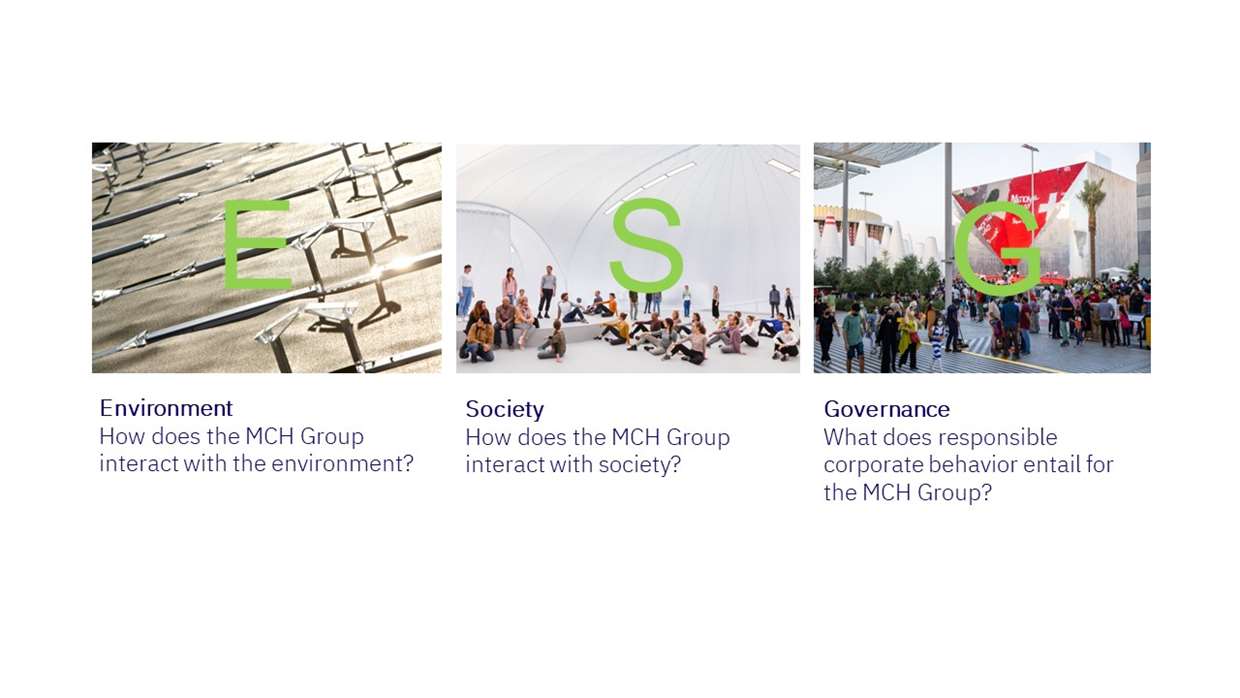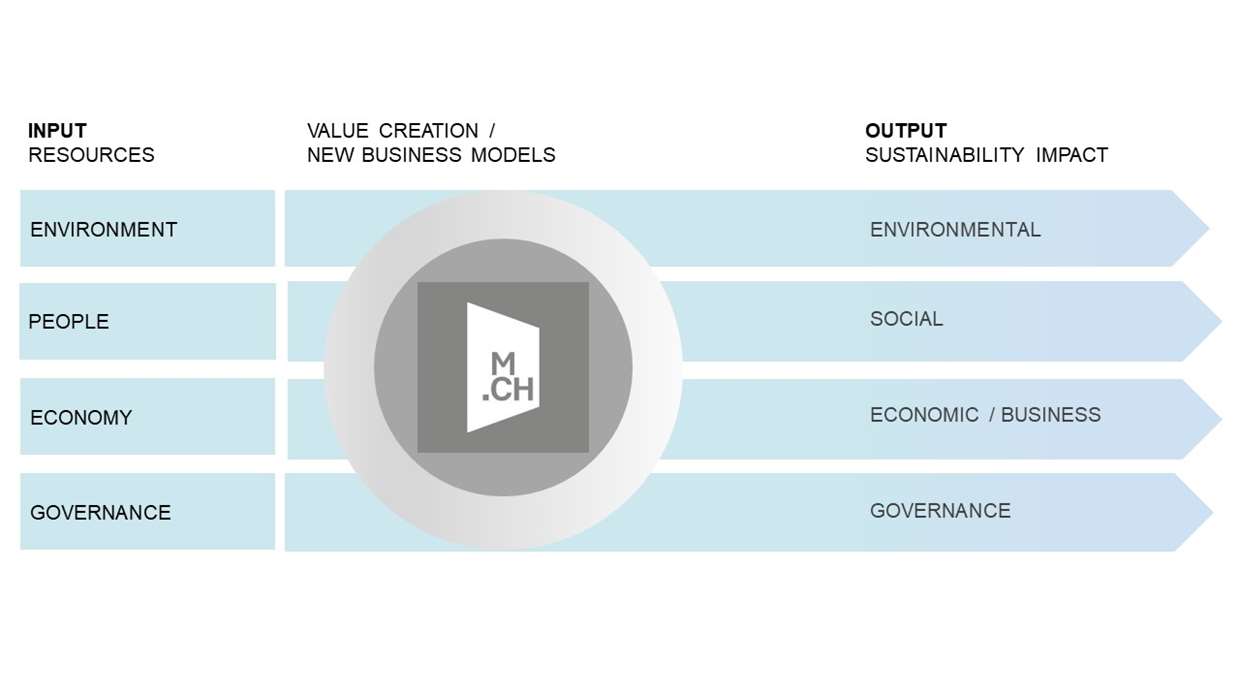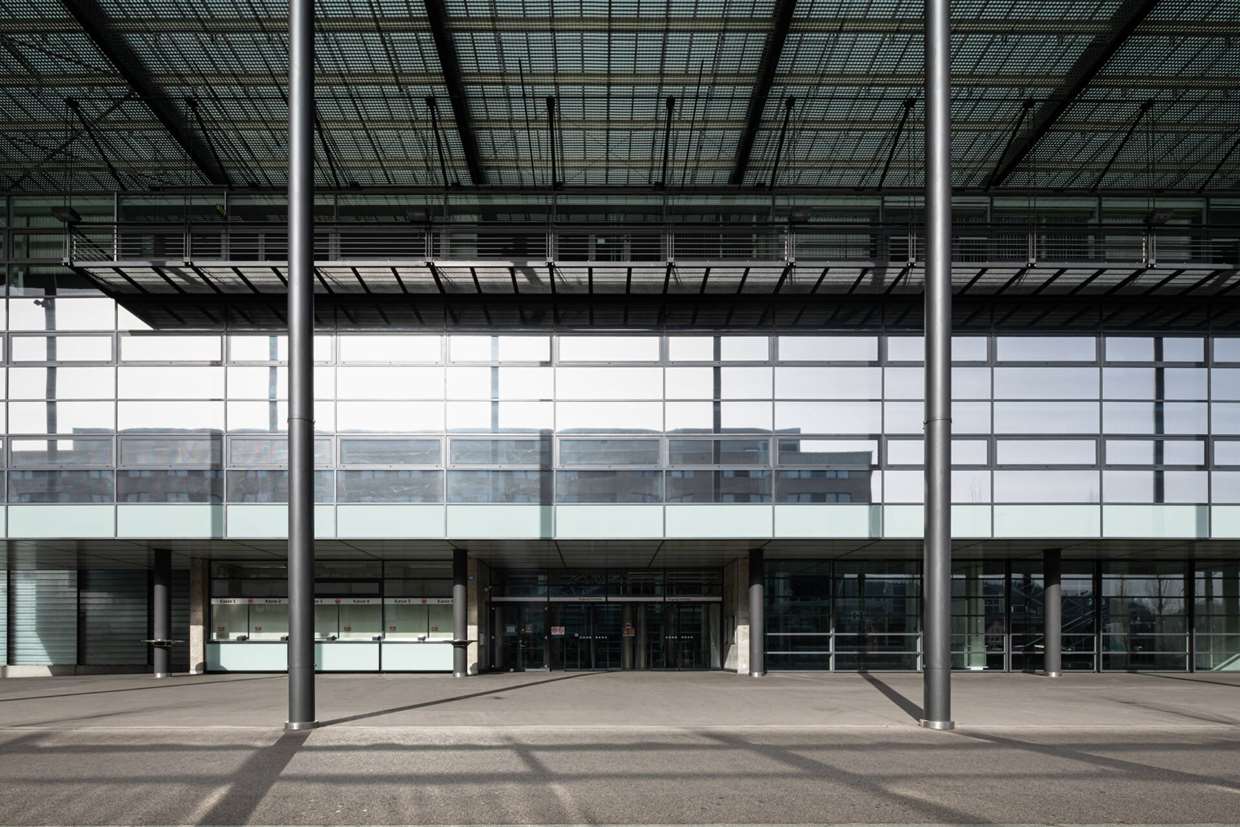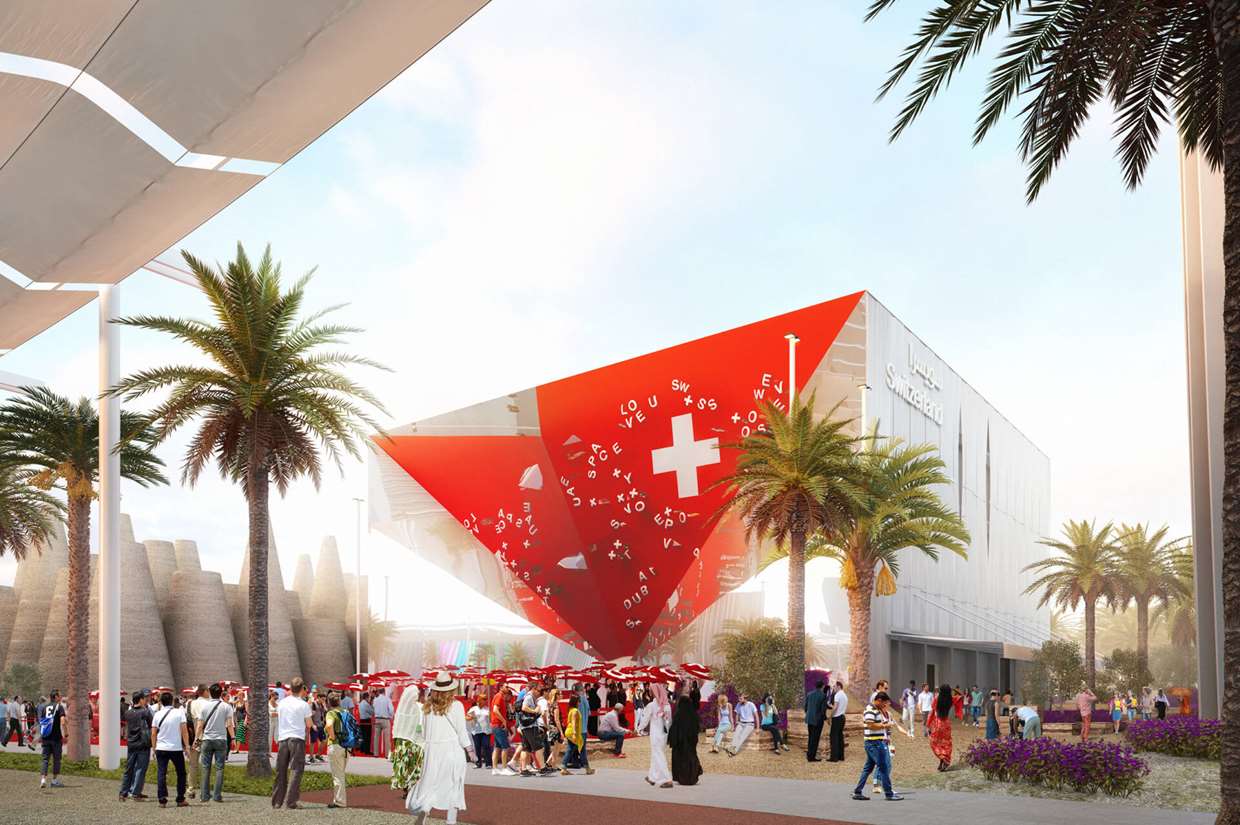2022 Sustainability Report
The 2022 Sustainability Report is being published in the context of the strategic realignment of MCH Group and an adapted organizational structure. The main focus is on internal consolidation and on strengthening the company as part of the transformation process (cultural change). At the same time, the sustainability strategy is being taken forward.
MCH Group wishes to retain its key role in the exhibition and event sector. Our strategic goal is to create added value by integrating the ESG aspects into our value creation (ESG: Environment, Society, Governance).

A key aspect of MCH Group’s annual reporting involves being transparent about the relevant sustainability topics and our sustainability performance (GRI 2-3). The 2022 Sustainability Report has been prepared in accordance with the latest Global Reporting Initiative (GRI) Standard and is published in May 2023 as a separate report. No corrections or restatements compared to previous years are required for the 2022 reporting year (GRI 2-4). No external assurance has been conducted of the figures and information published in this report (GRI 2-5). The Sustainability Report is published in the context of the 2022 Business Report (Annual Report, Financial Report, Remuneration Report).
New non-financial reporting and due diligence obligations
Reporting on non-financial matters has been given greater weight through the legal obligation set out in Art. 964a ff. of the Swiss Code of Obligations (CO). On January 1, 2022, new reporting, transparency and due diligence obligations came into force for companies domiciled in Switzerland as per the Swiss Code of Obligations (Art. 964a-c and 964j- l CO) and the associated implementing ordinance (Ordinance on Due Diligence and Transparency in relation to Minerals and Metals from Conflict-Affected Areas and Child Labor [VSoTr]). The obligation to report on non-financial matters applies to "public interest entities" as per Art. 2 letter c AOA (Audit Oversight Act). MCH Group is also subject to this obligation, since, together with the Swiss and foreign companies it controls, the group has an annual average of at least 500 full-time employees for two consecutive business years and reports a balance sheet total in excess of CHF 20 million or sales in excess of CHF 40 million.
These provisions apply to MCH Group for the first time in 2024, for its reporting on the 2023 financial year. In its report, the company must account for environmental, social and labor issues as well as for the respect of human rights and the fight against corruption (including due diligence and transparency obligations with regard to minerals/metals from conflict areas and child labor). MCH Group has made a start on the preparatory work for this (see Governance). For 2022, reporting on corporate and social responsibility is based on the GRI standards.
How we make an impact
Economic, environmental and social sustainability is a key success factor for MCH Group and is thus of major importance for its strategic decisions. The group promotes sustainable behavior in all areas and at all levels.

SK Telecom CES 2022 by MC2
“For us at MCH Group Ltd., sustainability means acting responsibly towards people (social), the environment (environmental) and the economy (economic). We want to show society that sustainability promotes new perspectives and business models and demonstrate how we actively mitigate negative effects where possible. We know that we are active in an industry that accounts for a high level of emissions and hence that special efforts are expected of us.
As an authentic and transparent member of society, we want to support our partners, visitors, suppliers and employees in integrating sustainability into their business activities and day-to-day business life. We also regard this as a task for us as a company and take our responsibility seriously. Sustainable thinking and action are no longer an option but are to be a matter of course in future. We can only bring about this change collectively, by creating shared visions, exploiting synergies among ourselves and mutually supporting one another, in dialog with our stakeholders.” MCH Group Sustainability Team
MCH Group's corporate activity has a high sustainability value:
Our marketing platforms and solutions contribute to the success of a range of companies and industries by bringing them together in a specific location at a specific point in time. This concentration on a specific time and place has key advantages for all the partners involved, reducing the amount of travel and individual activities taking place all over the globe.
While running its own exhibition infrastructure in Basel and Zurich is an intensive operation, MCH Group has effectively implemented key measures over the past few years. At all the Swiss locations – Messe Basel, Messe Zürich and Expomobilia – 100 % of electricity consumed comes from renewable sources. More than 88% of the overall energy requirements at the Basel and Zurich exhibition sites are met by renewable energies. Photovoltaic systems on the roofs of Messe Basel and Messe Zürich and also at Expomobilia’s location in Effretikon generate approximately 1.8 million kWh every year. This corresponds to the electricity requirements of around 400 single-family homes with four-person households.
The locations benefit from MCH Group’s activities and platforms in various ways, especially through the major economic impact triggered by exhibitions and events: publicity and an identity for the location, tourism, the hotel and restaurant trade, etc. At the same time, the location interests of the Basel and Zurich regions are safeguarded through the public sector’s participation in the holding company and its representation on the Board of Directors.

Our commitment to sustainability and social and ecological responsibility – with simultaneous value creation – is reflected in the MCH Group business model. The use of renewable energies and reusable or replenishable materials, for example, can significantly reduce the negative environmental impact of fairs.
Indirect economic impacts
Exhibitions, congresses and events generate a major direct and indirect economic benefit. A number of studies on the economic impact of exhibitions show that exhibition companies produce indirect returns that are eight to ten times greater than their own turnover. Only 20 to 25% of the expenditure incurred by an exhibiting company when it takes part in an exhibition goes to the exhibition organizers. Some 75 to 80% of its expenditure goes to different suppliers and service providers.
In Switzerland, the activities associated with MCH Group trigger sales of several billion Swiss francs as direct or indirect knock-on effects. This expenditure goes to the construction and ancillary industries (around 20%), the hospitality industry (around 30%), public transport operators (around 16%), the retail trade (around 6%), and different service providers (around 28%). The associated added value serves to create jobs and generates significant tax revenue for the confederation, cantons and communes.
Further effects exist that cannot be expressed in figures. These include, in particular, the positive influence of trade fairs as successful marketing platforms for the industries and companies concerned.
At the locations at which trade fairs and congresses are staged, these frequently have a "lighthouse effect" for tourism through their reach or appeal, which is transmitted to the city or country in question. The Basel region, for instance, benefits from the fact that the globally leading events of Art Basel in Basel, Art Basel in Miami Beach and Art Basel in Hong Kong carry the name of their "home city" throughout the world.
Material topics
To gain greater insight into the significance of sustainability for MCH Group, we conducted a survey of more than 200 external and internal stakeholders (customers, partners, employees, shareholders, etc.) in 2022. Respondents had to rate 30 pre-selected factors according to their actual and potential social, economic and environmental impacts, including their impact on human rights. Based on the survey results, we identified and prioritized the material topics for our sustainability strategy and reporting. These are strategic topics we are addressing or projects in progress. (GRI 3-1)
Strategic topics, aims, measures

Sustainable procurement
Compilation and application of social and environmental criteria for selecting and working with suppliers

Logistics and transport
Concepts for transport to and from our sites, the switch to electric vehicles, an integrated waste concept

Diversity, equal opportunity, inclusion
Implementation, living out the values; advancement of the topic in conjunction with the Global HR Team

Training and education
Work is ongoing on the implementation of a training tool to take ahead all the business units worldwide in matters of sustainability. Staging of the 'Culture Journey' and the 'Management Development Program'

Waste reduction and segregation
Focus on exhibitors: optimization of procurement (waste minimization), optimization of recycling and waste disposal, signage Individual measures: carpeting, giveaways, etc.

Energy management
Using/switching to renewable energy sources, including our own photovoltaic systems, optimization of hall lighting systems through sector-based lighting and dimmable lighting, for example

New sustainable business models
Development of sustainable projects and initiatives aligned to the new sustainability requirements of our markets and stakeholders.
In determining the material topics, we are following the Global Reporting Initiative’s (GRI) recommendations on materiality analysis and implementing these in accordance with 'Standard GRI 3: Material Topics 2021'.
Our material topics (GRI 3-2):